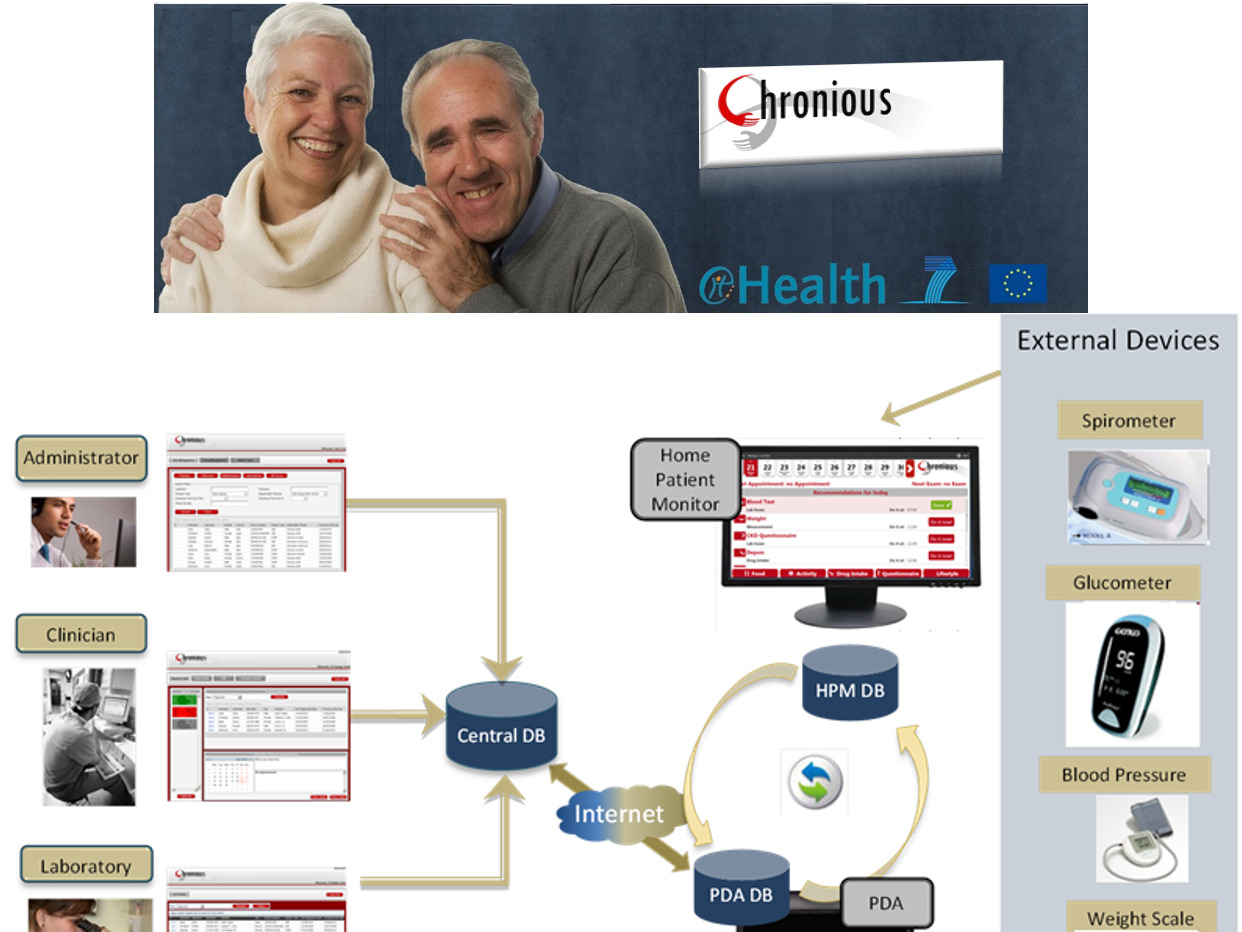CHRONIOUS: An Open, Ubiquitous and Adaptive Chronic Disease Management Platform for COPD and Renal Insufficiency (FP7-ICT-2007–1– 216461 CHRONIOUS)
START DATE: February 2008
END DATE: May 2012
Site: http://www.chronious.eu/
CHRONIOUS was a highly innovative ICT research project, lasted for 52 months, and partially funded by the European Commission (under the 7th Framework Programme) with a budget of about 10 million euros. The Consortium involved in the project gathered expertise and skills at a Pan-European level, including partners from different EU member states, namely Italy, Spain, Germany, Portugal, United Kingdom, Austria, Czech Republic, Greece. Its primary goal was to define a European framework for a health-monitoring platform addressing people with chronic disease. This was achieved by realizing a smart wearable platform, able to process multi-parametric sensors data, for monitoring people suffering from Chronic Obstructive Pulmonary Disease (COPD), Chronic Kidney Disease (CKD) and Renal Insufficiency. The system was able to constantly monitor patients’ health condition through sensors integrated into a T-shirt or scattered in the living environment and through ad-hoc questionnaires on symptoms and lifestyle displayed on a smart device (touchscreen PC or smartphone). The system was able to analyze these collected data, by employing a multi-parametric expert system based on intelligent algorithms and complex techniques, and generate alerts in case of data pertaining the health status and lifestyle lay outside the well-established patterns. A dedicated and secure web platform was developed to notify healthcare providers with collected data and alarms. Finally, an ontological information retrieval system was delivered for enabling the consultation of up-to-date clinical information. The CHRONIOUS platform was validated through clinical trials in several medical centers and home environments around Europe with 100 patients in two stages. The results of the utilization of the system were very encouraging. The CHRONIOUS system was proven to be a well-validated real-time patient monitoring and supervision platform, representing a useful tool for the clinician and the patient able to contribute to a more effective management of chronic diseases. The CHRONIOUS platform can be considered a successful model for the future generations of “”chronic disease management systems”” and can facilitate the realization of sophisticated monitoring tools.

